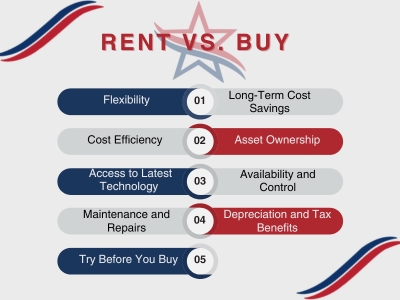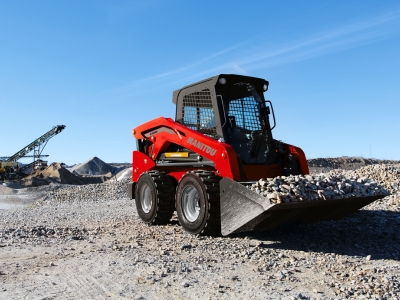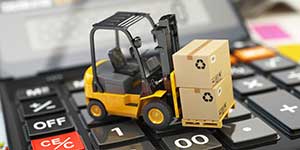Rent vs. Buy: Making the Right Material Handling Equipment Decisions

In the fast-paced world of material handling, choosing the right equipment can significantly impact your business's efficiency and bottom line. Whether you're in manufacturing, construction, or logistics, the decision to rent or buy material
handling equipment is crucial. At Lonestar Forklift, we understand that every business has unique needs, which is why we offer both rental and purchase options. In this post, we'll explore the benefits of each option to help you make an informed decision.
Overview of Material Handling Equipment Needs
The first step in deciding whether to rent or buy material handling equipment is to understand your business's specific needs. Factors such as the type of industry, the scale and duration of your projects, and budget constraints all play a role.
From forklifts and telehandlers to specialized equipment like aerial work platforms and reach stackers, the variety of material handling equipment available can be overwhelming. Understanding your operational requirements is key to making the right
choice.
Advantages of Renting Material Handling Equipment

Flexibility:
Renting equipment provides unparalleled flexibility, allowing businesses to scale operations up or down based on demand. This is particularly beneficial for seasonal peaks or short-term projects, where owning equipment might not be cost-effective.
Cost Efficiency:
Renting eliminates the need for a significant upfront investment, making it an attractive option for businesses looking to manage cash flow more effectively. Monthly rental payments are predictable and can be accounted for as an operational expense, which
can simplify budgeting.
Access to the Latest Technology:
When you rent, you have the opportunity to use the latest models and technology without committing to a purchase. This ensures that your operations benefit from the newest features and innovations in the industry.
Maintenance and Repairs:
One of the biggest advantages of renting is that maintenance and repairs are often included in the rental agreement. This reduces downtime and ensures that your equipment is always in top condition, without the added cost and hassle of handling these
tasks yourself.
Try Before You Buy:
Renting allows businesses to test different equipment models before making a purchase decision. This hands-on experience can be invaluable in ensuring that the equipment meets your operational needs.
Benefits of Buying Material Handling Equipment

Long-Term Cost Savings:
For businesses with ongoing and consistent equipment needs, buying equipment can be more cost-effective overall. Ownership eliminates rental fees, and the initial investment can be recouped over time.
Asset Ownership:
Owning your equipment provides the freedom to customize it to meet specific operational needs. Additionally, owned equipment can be sold or traded in the future, providing a return on investment.
Availability and Control:
Owning equipment ensures that it is always available when needed, without the concerns of rental availability. This is particularly important for businesses with critical, continuous operations.
Depreciation and Tax Benefits:
Buying equipment offers potential tax advantages, including depreciation deductions. These benefits can offset the initial cost and provide financial savings over time.
Key Considerations for Decision-Making
When deciding between renting and buying, several factors should be considered:
Project Duration and Frequency:
Consider how often and for how long you will need the equipment. Short-term or infrequent needs may favor renting, while long-term and frequent use might justify purchasing.
Budget and Financial Health:
Evaluate your company's financial situation and budget. While buying requires a significant upfront investment, renting offers a more manageable financial commitment.
Operational Flexibility:
Assess your need for flexibility. Renting offers the ability to switch out equipment as needs change, while buying provides stability and control.
Maintenance and Support:
Determine your ability to manage maintenance and repairs. Owning equipment means taking on the responsibility for its upkeep, while renting shifts this burden to the rental provider.

Lonestar Forklift's Offerings
At Lonestar Forklift, we offer a range of solutions to meet your material handling equipment needs:
Rental Options:
Our rental programs cater to both short-term and long-term requirements, offering a wide range of equipment from top brands like Hyundai, Manitou, and Genie. Whether you need a forklift for a week, a month, or several months, we have flexible options
to suit your schedule as well as your budget.
Purchase Options:
We offer a selection of new and used equipment for sale, allowing you to invest in reliable machinery tailored to your operational needs. Our financing plans and leasing options make it easier for you to get the equipment you need without straining your
budget.
Service and Support:
We provide comprehensive maintenance and support services, ensuring that your equipment remains operational and efficient. Our team of skilled technicians is available to handle repairs and maintenance, minimizing downtime and maximizing productivity.
Customer Success Story:
One of our clients in the logistics industry faced a surge in demand during the holiday season. Unsure whether this increase would be sustained, they opted to rent several forklifts to manage the temporary spike in workload. The rental option allowed them to meet the seasonal demand without a large upfront investment. After the peak season, they assessed their ongoing needs and decided to buy a few key pieces of equipment, which they had the opportunity to test during the rental period. This strategy provided them with the flexibility to adapt to market changes and the confidence to invest in the right equipment for their long-term needs.
Choosing between renting and buying material handling equipment depends on several factors, including project duration, budget, and the need for flexibility. Both options offer distinct advantages, and the right choice will depend on your specific
business requirements. At Lonestar Forklift, we are committed to helping you make the best decision for your operations. Contact us today for a personalized consultation and let us help you lift Texas to new heights with the right equipment solutions.
#letslifttexas

